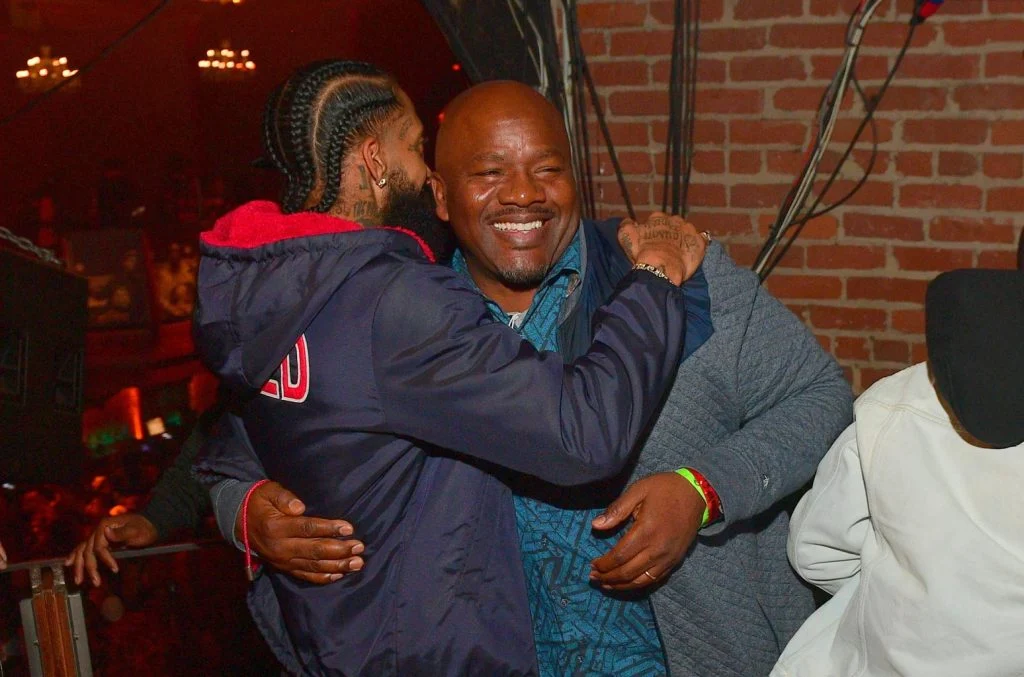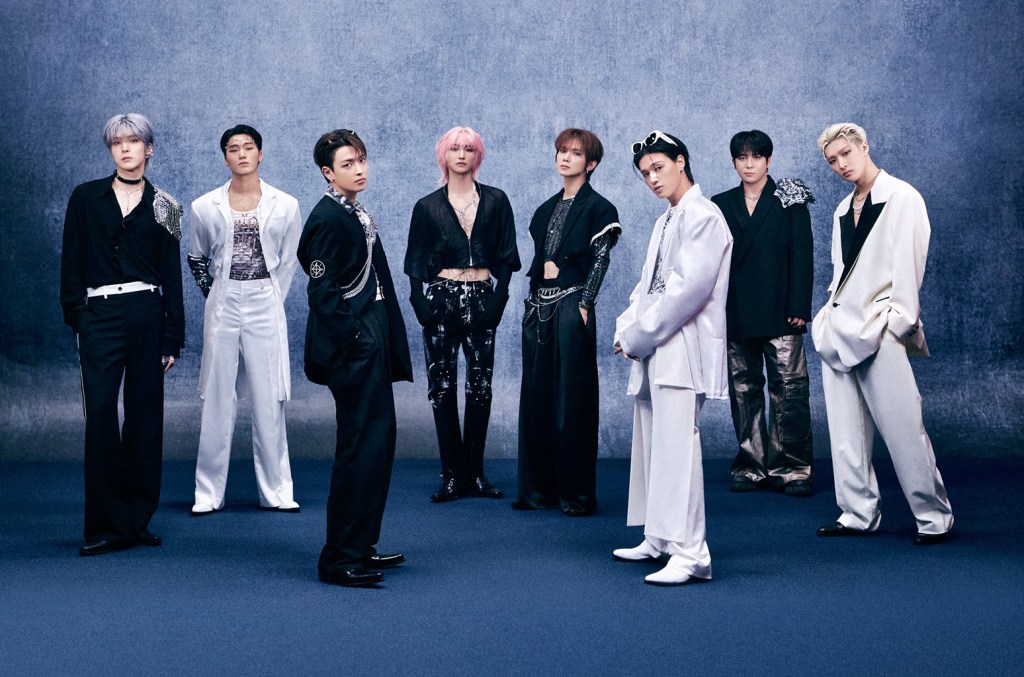Business
Page: 99
A former employee of Eminem (Marshall Mathers) has been criminally charged in connection with the sale of unreleased music by the rap superstar, it was announced by Acting U.S. Attorney Julie Beck on Wednesday (March 19). According to the criminal complaint, the FBI was contacted by employees of Eminem’s music studio in Ferndale, Michigan, to […]

Alleged Rollin’ 60s Los Angeles Crips gang leader and music executive Eugene “Big U” Henley Jr. has been charged as part of a 107-page sprawling indictment that compares his “Big U Enterprise” to a “mafia-like organization,” the Department of Justice announced on Wednesday (March 19).
According to the DOJ, Henley, 58, remains at large and is considered a fugitive as he faces conspiracy charges related to the Racketeer Influenced and Corrupt Organizations (RICO) Act. He and his associates are accused of racketeering, extortion, human trafficking, fraud and the murder of a 21-year-old aspiring rapper who signed to his Uneek Music label, among other charges.
Henley is credited with helping launch the career of rapper Nipsey Hussle, who was a member of the Rollin’ 60s in South Central Los Angeles prior to his death in 2019.
Two others named in the indictment, Sylvester “Vey” Robinson and Mark “Bear Claw” Martin, have been arrested on the same criminal complaint in which Henley was charged; both were expected to appear in U.S. District Court in L.A. on Wednesday afternoon. Overall, 10 Rollin’ 60s members have been arrested in the past 24 hours, while another four were already in custody. Law enforcement is currently tracking down five other defendants, “three of whom are expected to be in custody shortly,” according to the DOJ press release. In addition to Henley, one other unnamed defendant is considered a fugitive.
“The allegations in the complaint unsealed today reveal a criminal enterprise that engaged in murder, extortion, human trafficking, and fraud — all led by a supposed anti-gang activist and purported music entrepreneur who was nothing more than a violent street criminal,” said acting U.S. Attorney Joseph McNally in a statement.
McNally continued: “Eliminating gangs and organized crime is the Department of Justice’s top priority. Today’s charges and arrests target the leadership of this criminal outfit and will make the neighborhoods of Los Angeles safer. I am grateful for the work of our prosecutors and law enforcement partners.”
According to the DOJ, Henley was involved in the murder of rapper “R.W.” — the victim’s initials — who signed to his Uneek Music label in January 2021. While recording at a studio in Las Vegas, R.W. allegedly recorded a diss track taking shots at Henley. According to the DOJ, Henley and Robinson then confronted R.W. in Vegas, with Henley allegedly later shooting R.W. in the head and leaving his body in a ditch off Interstate 15. He also allegedly had the studio’s security camera footage scrubbed and ordered any witnesses not to speak with authorities following the murder.
The indictment states that Henley rose to prominence with the Crips gang in the 1980s and has remained a leader within the organization. The feds accuse him of leveraging his relationships with the Rollin’ 60s to the benefit of his Big U Enterprise, which allegedly used violence, fear and intimidation tactics to increase its power.
While associated with the Rollin’ 60s, Big U Enterprise is being treated as an independent organization tied to various crimes also including robbery, exploiting sex workers and illegal gambling.
Per the Los Angeles Times, athletes, celebrities and musicians were among Henley’s extortion victims, who were required to “check-in” for “protection” when visiting Los Angeles. He allegedly defrauded companies, donors, athletes and celebrities, including former NBA star Shaquille O’Neal and Golden State Warriors forward Draymond Green. Henley allegedly took donations from both men that were meant for charity and transferred the funds to his personal bank account.
Attorney Tony Buzbee is withdrawing from more than a dozen sexual abuse lawsuits against Sean “Diddy” Combs in New York federal court two days after telling a judge he had “made an error in judgment” by failing to disclose that he was not admitted to practice law in that court.
Buzbee, who’s filed more than 20 cases against Combs and has fought an acrimonious battle with Jay-Z after filing a lawsuit by a woman who briefly accused him of rape, filed motions Wednesday (March 19) to withdraw across 15 different civil lawsuits in the Southern District of New York, the federal court district covering Manhattan.
The moves came two days after Buzbee told Judge Ronnie Abrams in one of those cases that he’d “made an error in judgment by failing to inform you that I was not admitted to the Southern District” and would “remedy this error by withdrawing my representation” until he was admitted.
In the same filing, Buzbee stressed that he was “in good standing of the New York State Bar” and would still be “eminently qualified” to continue handling the case, but said he would step away “as I sort these issues out.”
“My admission status has become a distraction that has shifted the focus of the matter away from where it should be, which is securing justice for the plaintiff,” Buzbee told Judge Abrams in the Monday letter.
The lawsuits against Combs will proceed with other attorneys at the helm, and Buzbee will remain in cases filed in New York state courts or other jurisdictions. Buzbee did not return a request for comment from Billboard, but in a Tuesday statement to the Houston Chronicle, he said: “Until that administrative issue is sorted out, my colleagues who are formally admitted in the SDNY will continue to push those cases while I continue to march forward in the New York State cases.”
Combs is facing a flood of abuse accusations, including dozens of civil lawsuits and a sweeping criminal indictment from federal prosecutors. He faces a jury trial on those charges in May; if convicted, he’s looking at a potential life prison sentence.
Buzbee, a well-known plaintiffs’ attorney in the Houston area, announced in October that was representing 120 individuals who had been victimized by Combs and would soon begin filing civil lawsuits on their behalf. He’s since filed more than 20 such cases, mostly repping anonymous Doe accusers who say the star sexually assaulted or raped them.
In December, Buzbee added Jay-Z as a defendant to one of those cases, accusing the star of joining Combs in raping an unnamed 13-year-old girl in 2000. The star vehemently denied the shocking allegations and has subsequently sued Buzbee and the accuser for defamation. In February, Buzbee’s client voluntarily dropped the case against Jay-Z without a settlement.
Veteran record label executive Joe McFadden, who worked for decades at companies including EMI Music and Capitol Records, died March 11 following a long illness. He was 77.
McFadden launched his career at EMI in 1975 and later worked at Capitol Records as senior vp of sales and field marketing. While at the latter label, he worked with acts including Paul McCartney, Bonnie Raitt, Bob Seger, Megadeth, Duran Duran, Beastie Boys, Radiohead, Foo Fighters, Coldplay and Iron Maiden.
In 2007, McFadden departed Capitol to open an independent consultancy, The Hammer LLC, where he worked with Punch Andrews and Mike Boila as a sales and marketing consultant for Seger. From 2007 to 2008, McFadden was also in charge of sales, marketing and promotions for Coldplay’s Viva La Vida album and world tour.
Trending on Billboard
McFadden joined Better Noise Music in 2008 as chief commercial officer. In that role, he oversaw operations, strategic planning and artist development for acts including Five Finger Death Punch, Mötley Crüe, Papa Roach, The Hu and Buckcherry.
Prior to entering the major label system, McFadden received an education in the music business through his father, Jack McFadden, with whom he worked to manage artists including Buck Owens and Merle Haggard from their home base in Bakersfield, Calif. He went on to earn a business administration and management degree from Fresno State University.
“Joe McFadden was more than just a colleague; he was a dear friend and an invaluable partner in our journey together since we first met in 1987,” said Better Noise Music founder Allen Kovac, who worked with McFadden in various capacities for more than 30 years.
Kovac added, “Joe admired my clarity in marketing, but what I valued most was his unwavering honesty and practical thinking. Together, we navigated the challenging waters of the music industry, working on projects like Richard [Marx] and Duran Duran. At times when many doubted, Joe stood firmly by my side as a label executive, always ready to open doors and create opportunities for us to succeed.” (Kovac’s full tribute is below.)
McFadden is survived by his wife Ellen McFadden; his sister Lana Waltman; his sons Jonathan McFadden, Jeffrey McFadden and David Torello; his daughter Sara Torello Hart; and grandchildren Jeffrey McFadden Jr., Maci McFadden Stanford, Vivian Hart and Elijah Hart.
A service will be held Saturday (March 22) at 1:15 p.m. at Church of the Recession at Forest Lawn in Glendale, Calif. The live stream can be viewed here. In lieu of flowers, donations can be made in McFadden’s honor to St. Jude’s Hospital, which he supported throughout his life.
Allen Kovac tribute:
Joe McFadden was more than just a colleague; he was a dear friend and an invaluable partner in our journey together since we first met in 1987.
I still vividly recall that day in the bleachers of a gym in Philadelphia. I was a relatively unknown manager on the rise, working with Richard Marx, while Joe was with CEMA Distribution, quietly making his mark. As we listened to Richard perform, something remarkable happened. Joe, who initially struck me as understated, became animated and vocal, pointing at Richard and proclaiming, “That kid is going to be a star.” From that moment on, a bond was forged between us—two believers in the power of music and vision.
Joe admired my clarity in marketing, but what I valued most was his unwavering honesty and practical thinking. Together, we navigated the challenging waters of the music industry, working on projects like Richard and Duran Duran. At times when many doubted, Joe stood firmly by my side as a label executive, always ready to open doors and create opportunities for us to succeed.
When I took the leap to start my own record company, one of my first hires was, without question, Joe. He was not just an employee; he was the foundation upon which we built our dreams. At our retreats, where new ideas were often met with skepticism, Joe would be the voice of reason, encouraging everyone to listen to my vision and reminding them that I saw possibilities they might have missed. His confidence in me gave me strength, and I will forever be grateful for that.
Every morning at our retreats, Joe would be the first to rise and greet the day. He would come down to breakfast with a smile, often sharing his fondness for the wonderful pillows in my master guest bedroom. He always got that room because of the deep respect I had for him, just as I cherished ending each night with my best scotch, a tradition we shared and enjoyed together.
Joe’s spirit, enthusiasm, and unwavering support have left an indelible mark on all of us. He was a true champion for those he believed in, and today, as we remember him, let us carry forward his legacy of belief, honesty, and camaraderie in our own lives and work.
Joe, thank you for being my partner, my friend, and a guiding light in our industry. You will be profoundly missed, but your influence will live on through each of us.
Rest in peace.
A federal judge is shaking up Limp Bizkit’s $200 million lawsuit against Universal Music Group (UMG), issuing a procedural ruling that sends much of the contentious legal battle to state court but allows copyright claims to move ahead toward trial.
In a decision issued Tuesday (March 19), Judge Percy Anderson said he would decline to exercise jurisdiction over the majority of the lawsuit’s accusations against UMG, including its core claim that the band is entitled to a ruling of “rescission” that voids its deals with the label and allows it to take back copyrights to its music.
Citing concerns about “economy, convenience [and] fairness,” the judge ruled that those claims must instead be handled by state courts in New York or California. But he denied UMG’s motion to dismiss the band’s claim of copyright infringement, allowing those claims to proceed in his court.
Trending on Billboard
Though hardly a slam dunk, the ruling is a positive development for Limp Bizkit. In an earlier ruling, Judge Anderson had outright rejected the rescission claim — a holding that also meant the band couldn’t sue the label for copyright infringement. In the new decision, the judge left the question of rescission open for a future ruling by a state court, meaning that claim — and the lucrative copyright claims — are back in play.
Though the copyright claims will now move forward in his court, the judge has repeatedly stressed that those allegations can only succeed if the band’s contracts with UMG are rescinded and it regains its ownership of the copyrights. The judge could potentially pause the case while the rescission issue is litigated in state court, but he gave no indication that he would do so in Tuesday’s decision.
Frontman Fred Durst and Limp Bizkit sued in October, claiming the band had “never received any royalties from UMG” despite its huge success over the years: “The band had still not been paid a single cent by UMG in any royalties until taking action.” The band argued that the damages total owed by UMG would “easily surpass $200 million” when the case was over.
But in January, Judge Anderson sided with UMG on the core question of rescission. He ruled that the band had in fact been “paid millions in advances” and that UMG had fronted “substantial sums” to record and distribute Limp Bizkit’s albums — meaning the band didn’t deserve the drastic remedy of terminating the decades-old deals in their entirety.
“Plaintiffs seek rescission of contracts that have governed the parties’ relationship beginning in 1996 — nearly 30 years — because the agreements should be rescinded as fraudulently induced,” the judge wrote. “Plaintiffs have not plausibly alleged the type of ‘substantial’ or ‘total failure’ in the performance of the contracts that could support rescission of the parties’ agreements.”
Following that ruling, Limp Bizkit responded by filing an updated version of the lawsuit. In it, the band added new factual allegations to support their demand for rescission, including that its former manager had fraudulently induced them to sign agreements, engaging in “wrongful self-dealing” while the band was “paid nothing.”
In Tuesday’s decision, Judge Anderson said those new allegations would require the kind of detailed analysis of novel state-law issues that a state-level court was better suited to address.
“The rescission claims, on which the copyright claims depend, … require an analysis of state law of both New York and California law involving facts and law that are distinct from those necessary to adjudicate the copyright claim,” the judge wrote. “Plaintiffs’ effort to rescind the agreements as a result of the alleged fraud committed by their former business manager appears to also raise complex and novel theories for which there is limited controlling legal precedent.”
KQ Entertainment, the South Korean music company behind ATEEZ, signed a multi-year agreement with AEG Presents to oversee the production of all global tours for the K-pop supergroup. The partnership, the terms of which were not disclosed, will enable “both companies to leverage their core strengths to further promote K-pop on a global scale,” according […]
Universal Music Group is asking a federal judge to halt all discovery in Drake’s defamation lawsuit over Kendrick Lamar’s diss track “Not Like Us,” arguing that the star is unfairly demanding “highly commercially sensitive documents” – including Lamar’s record deal.
A day after moving to dismiss the lawsuit, UMG followed up Tuesday by asking the judge to pause discovery until he rules on that motion. That ruling is likely to end the entire case, UMG argued, and the label should not face costly demands for documents that will ultimately “be rendered moot.”
Such a delay is particularly necessary, UMG said, because Drake’s lawyers are already demanding “broad discovery” requests that impose an “undue burden” on the company. Those asks have allegedly ranged from Interscope boss John Janick’s pay structure to Lamar’s record deal.
Trending on Billboard
“Drake’s requests…seek production of confidential, proprietary, and highly commercially sensitive documents — including all contracts between UMG and Kendrick Lamar,” the label writes. “Proceeding with discovery while the motion is pending would waste the parties’ resources and would constitute an undue burden on defendant.”
In a statement Wednesday, Drake’s attorney Michael J. Gottlieb said it was “unsurprising” that UMG was “desperate” to avoid handing over evidence: “This motion is a ploy to delay producing documents and communications that UMG hopes to keep hidden and buried. If UMG has nothing to hide, it should not have an issue with discovery.”
UMG did not immediately return a request for comment.
Lamar released “Not Like Us” last May amid a high-profile beef with Drake that saw the two stars drop a series of bruising diss tracks. The song, a knockout punch that blasted Drake as a “certified pedophile” over an infectious beat, eventually became a chart-topping hit in its own right and was the centerpiece of Lamar’s Super Bowl halftime show.
In January, Drake took the unusual step of suing UMG over the song, claiming the label had defamed him by boosting the track’s popularity. The lawsuit, which doesn’t name Lamar himself as a defendant, alleges that UMG “waged a campaign” against its own artist to spread a “malicious narrative” about pedophilia that it knew to be false.
UMG moved to dismiss the case on Monday, arguing not only that Drake’s allegations against the company were clearly “meritless,” but that the star filed his case simply because he had been publicly embarrassed: “Instead of accepting the loss like the unbothered rap artist he often claims to be, he has sued his own record label in a misguided attempt to salve his wounds.”
In Tuesday’s filing, UMG argued that it was highly likely to succeed on those claims. And it warned that the daunting cost of defending against meritless defamation cases can be abused by those that want to squelch free speech.
“Critically, courts in this District have emphasized that defamation defendants must be protected from unnecessary discovery to safeguard First Amendment protections,” the company’s lawyers write. “A stay is therefore particularly warranted here given the untenability of Drake’s defamation claim and the First Amendment rights at issue.”
The two sides have already sparred over discovery once before. In a court filing last month, Drake’s lawyers said UMG was unfairly seeking to delay the case as their client continued to be defamed — and they cited Lamar’s halftime show as evidence of such ongoing harm. A judge eventually sided with Drake over that procedural issue, setting the stage for UMG’s motion on Tuesday.
Miley Cyrus has lost her initial bid to dismiss a copyright case claiming her chart-topping “Flowers” ripped off the Bruno Mars song “When I Was Your Man,” allowing the high-profile lawsuit to proceed toward a trial.
Seeking to end the case at the outset, attorneys for Cyrus had argued that the plaintiff who filed the lawsuit lacked the legal “standing” to pursue it. The case was filed not by Mars himself, but a financial entity called Tempo Music Investments that bought the rights of his co-writer Philip Lawrence.
But in a ruling issued Tuesday, a Los Angeles federal judge rejected that argument, calling it “incorrect” and a “misunderstanding” of existing legal precedents.
Trending on Billboard
“Tempo now steps into Lawrence’s shoes and is a co‐owner of the exclusive rights of the copyright,” Judge Dean D. Pregerson wrote. “Because Lawrence as a co‐owner could sue for infringement, Tempo as co‐owner, in lieu of Lawrence, can sue for infringement without joining the other co‐owners of the copyright.”
Attorneys for Cyrus called Tempo’s partial ownership a “fatal and incurable defect in plaintiff’s claim,” but Judge Pregerson ruled that endorsing the star’s argument would be a radical shift in the legal landscape and have a profound economic and creative impact.
“Such a limitation would diminish the value of jointly owned copyrights, because buyers would be less interested in purchasing a copyright that they cannot enforce, thereby disincentivizing co‐authorship and collaboration in works,” the judge wrote. “This would undermine Congress’s intent.”
In rejecting it, the judge took Miley’s argument to its rational endpoint: “If, as songwriter defendants’ arguments seem to suggest, a co‐owner’s right to sue for infringement is lost upon transfer, then if all original co‐authors transferred their interest, the copyright could never be enforced.”
Tuesday’s ruling is only an initial decision, and does not mean that Tempo will win its case against Cyrus. As it moves ahead, her attorneys will pivot to more substantive arguments – that her song simply did not infringe the Mars hit because they share only “unprotected ideas and musical building blocks.”
Attorneys for both sides did not immediately return requests for comment on Tuesday.
“Flowers,” which spent eight weeks atop the Hot 100, has been linked to “Your Man” since it was released in January 2023. Many fans immediately saw it as an “answer song,” with lyrics that clearly referenced Mars’ song. The reason, according to internet sleuths, was that “Your Man” was a favorite of Cyrus’ ex-husband Liam Hemsworth — and her allusions were a nod to their divorce.
When “Flowers” was first released, legal experts told Billboard that Cyrus was likely not violating copyrights simply by using similar lyrics to fire back at the earlier song — a time-honored music industry tradition utilized by songs ranging from Lynyrd Skynyrd’s “Sweet Home Alabama” to countless rap diss records.
But Tempo sued in September, claiming “Flowers” had lifted numerous elements beyond the clap-back lyrics, including “melodic and harmonic material,” “pitch ending pattern,” and “bass-line structure.” Tempo, which had purchased a fractional share in the song from co-writer Lawrence, argued it was “undeniable” that Cyrus’ hit “would not exist” if not for “Your Man.”
In her motion to dismiss the case, attorneys for Miley said that the total lack of involvement from Mars and the song’s two other co-writers was not some procedural quirk in the case, but rather a fatal flaw: “Without the consent of the other owners, a grant of rights from just one co-owner does not confer standing.”
LONDON — Global music sales grew for the tenth consecutive year in 2024 but the risk of generative AI systems using copyright-protected music to freely train their systems poses “a very real and present threat” to the future of the industry, warn record executives.
Total recorded music revenues climbed to $29.6 billion in 2024, a rise of 4.8% on the previous year, according to the International Federation of the Phonographic Industry’s (IFPI) Global Music Report 2025, published Wednesday (Mar. 19).
Driving the growth was a strong increase in paid streaming subscription revenue, which rose 9.5% to $15.2 billion, while total streaming revenues, comprising of paid subscription and advertising-supported tiers, rose 7.3% year-on-year to $20.4 billion, representing 69% of recorded music sales worldwide.
Trending on Billboard
Although last year’s growth rate is roughly half that of 2023 (when revenues rose by just over 10%) total music sales still reached the highest level since 1999 — when IFPI first started compiling global music revenues and sales totaled $22.2 billion — on an absolute dollar basis, not accounting for inflation. Piracy and declining physical sales saw the market bottom out at $13 billion in 2014.
The subsequent recovery and decade-long growth of the global record industry is now, however, being placed in jeopardy by tech companies who want to rollback copyright protections to enable them to use music works without a license for training AI systems, caution creators and executives. Earlier this week, Paul McCartney and Paul Simon were among 400 musicians, filmmakers, writers and actors who signed an open letter to the Trump administration opposing submissions from tech companies OpenAI, Anthropic and Google who want to use copyrighted works without permission from rights holders.
In the United Kingdom, the government is consulting on proposed changes to copyright law that, if implemented, would allow AI developers to freely use creators’ content for training purposes, unless rights holders “opt out.”
“We are asking policymakers to protect music and artistry,” said IFPI CEO Victoria Oakley in a statement accompanying the Global Music Report. “We must harness the potential of AI to support and amplify human creativity, not to replace it.”
“If those [tech companies] arguing for these exceptions get their way, they can… put the existing [digital music services] out of business while paying artists and songwriters nothing. That is an incredible market distortion,” said Dennis Kooker, president of global digital business at Sony Music Entertainment, at the report launch in London.
Breaking down 2024’s global music sales, users of paid music subscriptions grew to 752 million worldwide, says the London-based organization, a rise of over 10% on the previous year. Subscription streaming revenues now account for just over 50% of global music sales.
On the physical side of the business, an 18th consecutive year of vinyl sales growth (up 4.6%) was not enough to arrest a 3.1% slide in overall physical revenues, which fell to $4.8 billion. IFPI said the decrease was partially due to a fall in physical sales in Asia, which accounts for more than 45% of all physical revenues worldwide.
In terms of market share, physical accounted for just over 16% of the overall market last year, down from 18% in 2023.
Performance rights revenue climbed 5.9% to $2.9 billion, representing just under 10% of global revenues and marking the sector’s fourth successive year of growth. Sync income was flat with 2023 at $650 million, representing a 2.2% share of the market.
Taylor Swift was 2024’s biggest-selling global artist, ahead of Canadian rapper Drake and K-pop sensation SEVENTEEN, IFPI announced last month, marking the fifth time she that she has taken the global crown and third consecutive year. Benson Boone’s Beautiful Things was last year’s biggest-selling global single across all digital formats with 2.1 billion equivalent streams.
Mexico Breaks Into Global Top 10 Music Markets, Bumping Australia
In terms of world markets, IFPI said that music revenues were up in every region and all but three of the 58 markets it tracks, with the U.S. retaining its long-held No. 1 position with music sales growing 2.2% year-on-year. By comparison, the U.S. recorded music market grew by 7.2% in 2023 and 4.8% the year prior.
The world’s second largest music market, Japan, was flat year-on-year due to a decline in physical sales, reports IFPI. The third and fourth-biggest markets for recorded music remain the United Kingdom (+4.9%) and Germany (+4.1%), respectively. China, ranked No. 5 globally, grew music sales by 9.6%. (IFPI’s free-to-access report does not provide market-by-market revenue breakdowns).
The rest of the top 10 is made up of France (+7.5%), South Korea (-5.7%), Canada (+1.5%), Brazil (+21.7%, the fastest growing top 10 market) and Mexico, which increased revenues by 15.6% to overtake Australia as the tenth largest global recorded music market.
Those cross-market gains are mirrored on a regional basis with revenues from the U.S. and Canada region up 2.1% and together representing the greatest share of global music sales at just over 40%.
Latin America — where streaming makes up almost 88% of the recorded music market — saw growth of 22.5%, once again far outpacing the global growth rate and marking the region’s 15th consecutive year of revenue growth.
Europe remains the second-biggest region for music sales, accounting for more than a quarter (29.5%) of global revenues and growing 8.3% year-on-year. In third place is Asia, where overall revenues rose by just 1.3% compared to almost 15% in 2023 due to a 4.9% fall in physical sales.
The two fastest growing regions globally were Middle East and North Africa, where streaming holds a 99.5% share of the market and which saw music sales grow 22.8%, and Sub-Saharan Africa, which recorded a 22.6% rise in revenues to surpass $100 million for the first time.
South Africa remains the largest market in the Sub-Saharan Africa region, accounting for 75% of its revenues, following growth of 14.4%. Revenues in Australasia climbed 6.4% to $629 million with Australia and New Zealand increasing sales by 6.1% and 7.8% respectively.
(IFPI uses current exchange rates when compiling its Global Music Report, restating all historic local currency values on an annual basis. Market values therefore vary retrospectively as a result of foreign currency movements, says IFPI, which represents more than 8,000 record company members worldwide, including all three major labels, Universal Music Group, Sony Music Entertainment and Warner Music Group.)
Tom Corson, co-chairman/COO of Warner Records, is set to receive the City of Hope’s 2025 Spirit of Life Award. It will be presented this fall at the annual Spirit of Life Gala in Los Angeles. For more than 50 years, the music industry has united around the Spirit of Life campaign, raising nearly $170 million to support City of Hope’s research and treatment efforts — mainly focused on cancer and diabetes.
“It is a profound honor to be recognized as this year’s Spirit of Life honoree,” Corson said in a statement. “At Warner Records, we often say it’s not just about the song — it’s about the artist. In the same way, City of Hope isn’t just about treatments — it’s about the people, their dreams, and their futures. When I sit down with an artist, we talk about their goals and aspirations, and we work to make those dreams a reality. That same spirit of transformation is at the core of City of Hope’s mission: turning hope into tangible breakthroughs for patients fighting cancer. The music industry has always been about more than entertainment; it’s about connection, transformation, and impact. I am proud to stand with my peers in championing this cause and supporting the vital and lifesaving work City of Hope does every day.”
Evan Lamberg, president of Universal Music Publishing Group North America and chairman of City of Hope’s Music, Film and Entertainment Industry (MFEI) board, said Corson’s honor was well-earned: “Tom has been an unwavering supporter of City of Hope for years, and his leadership and dedication to both our industry and this cause make him a truly deserving honoree.”
Trending on Billboard
Alissa Pollack, executive vp of global music marketing at iHeartMedia and president of City of Hope’s MFEI board, added: “Tom Corson has been a driving force in shaping modern music, and his philanthropic passion reflects that same commitment. The Spirit of Life campaign reminds us of the power of music to heal and inspire, and Tom’s leadership will help us elevate that message even further this year.”
“We are thrilled to honor Tom Corson as this year’s Spirit of Life recipient,” said Kristin Bertell, chief philanthropy officer at City of Hope. “Tom’s leadership, both in the music industry and as a long-time member of the Music, Film and Entertainment Industry Board, exemplifies the transformative spirit that defines our work.”
The honor is a cornerstone of the MFEI’s annual philanthropic campaign. This year, the campaign takes on even greater significance as Los Angeles continues to recover from January’s devastating wildfires — events that not only displaced families but also contributed to long-term health risks due to toxic smoke exposure.
A group of key industry executives founded City of Hope’s MFEI group in 1973. The Spirit of Life Award is the organization’s most prestigious honor. Past honorees include Jay Marciano, Lyor Cohen, Shelli and Irving Azoff, Edgar Bronfman Jr., Coran Capshaw, Eddy Cue, Clive Davis, Sir Lucian Grainge, Allen Grubman, Quincy Jones, Rob Light, Monte and Avery Lipman, Doug Morris, Mo Ostin, Bob Pittman, Jon Platt and Sylvia Rhone.
Since Corson joined Warner Records in January 2018, the storied label has had success with such new and established artists as Dua Lipa, Zach Bryan, Michael Bublé, Benson Boone, Teddy Swims, Rufus Du Sol, Linkin Park, Cher, Dasha, Red Hot Chili Peppers, JISOO, Josh Groban, Gary Clark Jr., Green Day, The Black Keys, Saweetie, NLE Choppa and Omar Apollo.
Corson came to Warner Records from RCA Music Group, where he spent nearly 18 years and most recently served as president/COO. He began his career in the music industry as a college intern at IRS Records. Upon graduating from UCLA, he joined the label as director of West Coast sales. Corson moved to A&M Records in 1985, advancing to vp of marketing. In 1990, he was named senior vp of marketing at Capitol Records. From 1996 to 2000, he served as senior vp of marketing at Columbia Records.
Corson has appeared on the Billboard Power 100 list for the last 14 years. On this year’s list, published in January, he and Warner Records co-chairman/CEO Aaron Bay-Schuck were listed at No. 15. Billboard’s capsule entry noted, in part: “Since taking over Warner in 2018, they’ve signed stars Zach Bryan, who was a 21-time finalist for the 2024 Billboard Music Awards; Teddy Swims and Benson Boone, who are both nominated for best new artist Grammys; Dasha, who ‘crossed over in pop and country,’ Corson says; and rapper NLE Choppa, who hit 9 billion career total streams. The label also relaunched Linkin Park, which released its first studio album in seven years, From Zero, and debuted at No. 2 on the Billboard 200.”
In addition, Corson and Bay-Schuck were named 2024 Variety Hitmakers Executive of the Year. Corson is a member of the Recording Academy and the Music and Entertainment Industry board for City of Hope and also sits on the executive committee of the board of directors for the T.J Martell Foundation. He is also the chairman of the UCLA School of Music Business’ board of advisors.

 State Champ Radio
State Champ Radio 









